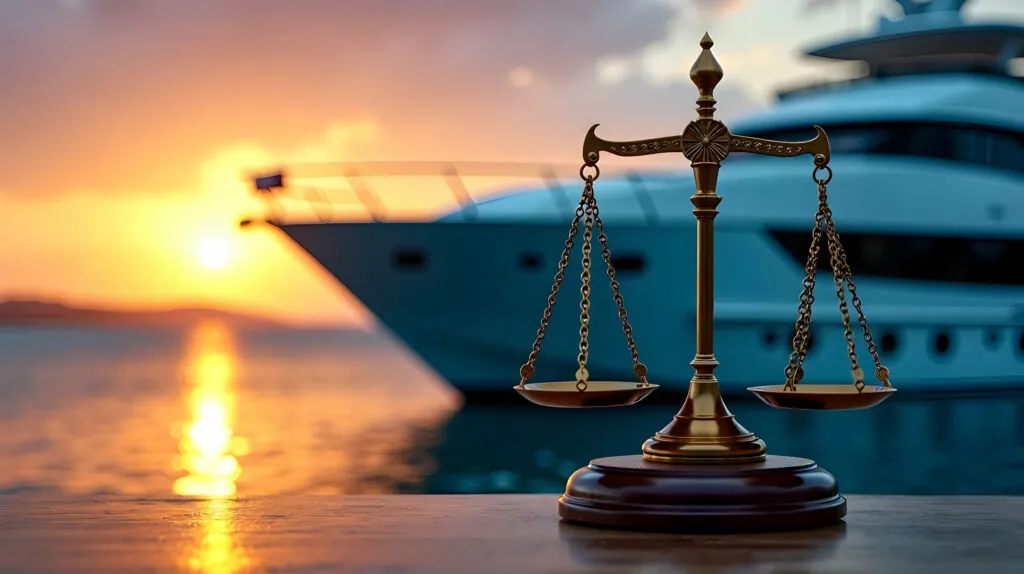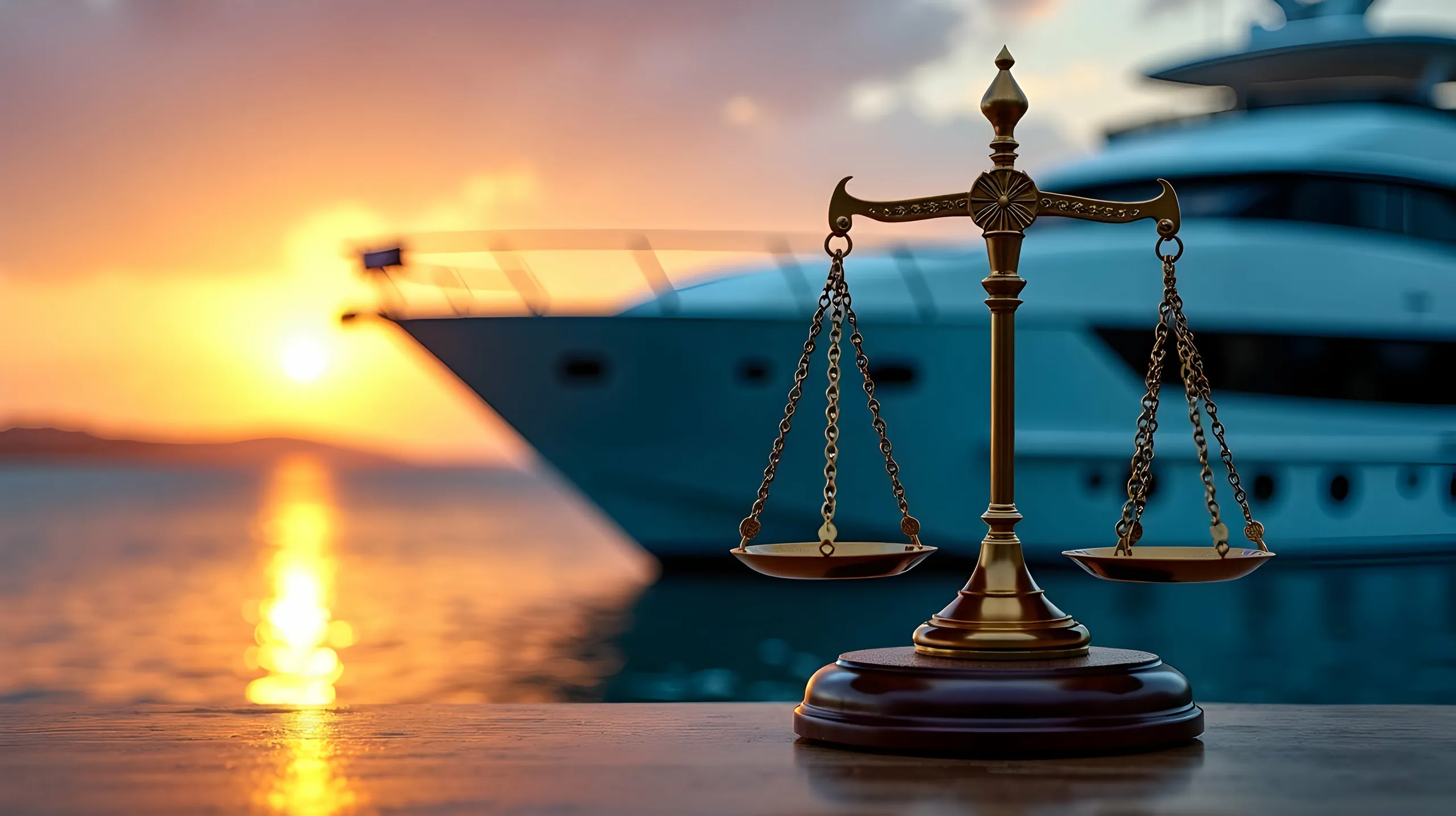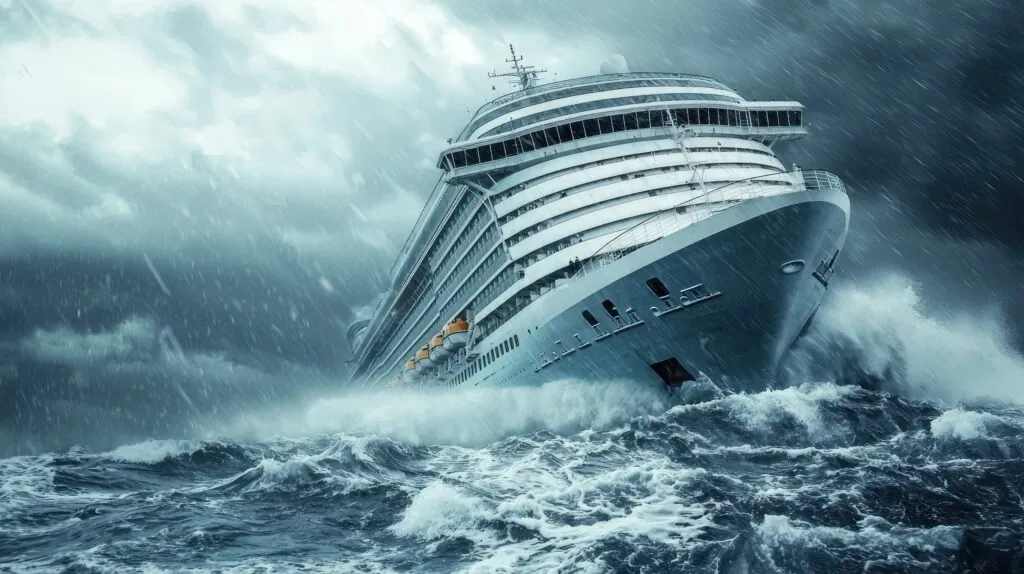What Happens When Maritime Law Conflicts with State Tort Law?
A Unique Legal Landscape for Maritime Injuries
Injuries at sea are governed by a legal system very different from the one most people are familiar with. Maritime law, also called admiralty law, is a distinct body of federal law that applies to navigable waters, and it often conflicts with the state tort laws that govern injuries on land.

When Two Legal Systems Overlap
Many injury victims find themselves caught between these two systems. Can they sue in state court? Are they limited to federal court? Do state remedies like punitive damages apply? These questions aren’t just legal technicalities—they determine where you can file, what damages you can recover, and how your case is argued.
The Cruise Injury Law Firm’s Mission
At The Cruise Injury Law Firm, we help clients across the country make sense of this complex jurisdiction. Whether your injury occurred on a cruise ship, ferry, portside, or offshore vessel, we’re here to ensure you file your claim in the right court, under the right law, to get the compensation you deserve.
What Makes Maritime Injury Law Different?
Federal Law with Global Reach
Maritime law applies to accidents and incidents that happen on oceans, rivers, lakes, and any other navigable body of water. It covers passenger injuries, crewmember accidents, collisions, and even dockside activities closely tied to maritime operations.
State Law: A Broader Range of Remedies
By contrast, state tort law governs personal injury and wrongful death claims on land. It also provides wider avenues for compensation, including punitive damages, pain and suffering, and the right to jury trials—which federal maritime court often does not allow.
Legal Gray Areas: When State and Federal Law Intersect
Often, both legal systems claim jurisdiction over the same case. For example, a cruise passenger injured during embarkation may have a maritime negligence claim, a Jones Act connection if crew was involved, and a state tort claim for premises liability.
Understanding which system gives you the strongest case is crucial—this is where our legal team’s experience makes all the difference.
Common Legal Conflicts We Handle
The Most Frequently Asked Questions
- Can I sue under state law for a maritime injury?
Yes, in some cases—especially when the Savings to Suitors Clause applies. - What happens when maritime law preempts state law?
Maritime preemption may limit or remove certain state-level remedies like punitive damages. - Can I file in either state or federal court?
It depends on the facts. Some maritime claims allow both options—but choosing the right one is key to maximizing results. - Are damages different under each law?
Absolutely. State tort law may allow for a wider range of compensation, including emotional distress and future losses.
Why These Questions Matter
Making the wrong legal move—such as filing in the wrong court or under the wrong statute—can delay your case, result in dismissal, or cost you thousands in lost compensation. We guide our clients through this complexity to protect every available remedy.
Jurisdiction Matters: Federal vs. State Court
Understanding Admiralty Jurisdiction
Federal admiralty courts have primary jurisdiction over most maritime claims. These courts do not provide jury trials in many cases, and the rules are more restrictive than those in state court.
The Role of the Savings to Suitors Clause
This federal provision allows claimants to file some maritime cases in state court, preserving access to jury trials and state-level remedies that federal courts may not offer. However, defendants may still attempt to remove the case to federal court.
Strategic Forum Selection
We analyze your case to determine whether it’s more advantageous to file in federal or state court—or in both. Our legal team has successfully litigated maritime claims in both jurisdictions, and we tailor our strategy to the facts of your case.
Injuries Covered Under Both Legal Systems
Types of Cases We Handle
Our firm focuses exclusively on maritime-related injuries, including:
- Cruise ship passenger accidents (falls, assaults, foodborne illness)
- Commercial vessel and cargo ship incidents
- Dock and port injuries tied to maritime operations
- Boating and recreational watercraft accidents
- Offshore oil platform and rig injuries
- Fatal accidents at sea or in port
- Longshore and harbor worker claims
How Legal Classification Affects Your Claim
Each injury is evaluated not just by what happened—but where and how it happened. This determines whether your case falls under general maritime law, the Jones Act, or state tort law, and impacts your available compensation.
Jones Act and Maritime Preemption: Know Your Rights
What is the Jones Act?
The Jones Act allows seamen to sue their employer for negligence. It provides protections for maritime workers not covered by traditional workers’ compensation laws.
When Maritime Law Blocks State Remedies
Even when you qualify to file in state court, federal maritime law may “preempt” certain state claims. For example, some courts have ruled that punitive damages are not recoverable under general maritime law unless explicitly allowed by statute.
How We Protect Your Full Compensation
Our attorneys are skilled at identifying when preemption applies—and when it doesn’t. We work to preserve your right to damages under the Jones Act, state law, and general maritime principles, ensuring you access the widest possible range of remedies.
Recent Cases We’ve Handled
1. Brain Injury on a Cruise Ship
A client sustained a traumatic brain injury during rough seas. The cruise line claimed maritime law barred punitive damages. We successfully argued the claim could proceed in state court, preserving our client’s right to seek full compensation.
2. Offshore Back Injury – Jones Act Case
An offshore worker injured his back due to unsafe equipment. We filed a Jones Act claim in federal court, secured maintenance and cure, and negotiated a high-value settlement based on his long-term disability.
3. Wrongful Death at Port
A longshoreman died while unloading cargo. We pursued dual claims under state wrongful death law and general maritime law, securing a significant recovery for the surviving family members while fending off federal removal efforts.
Why Choose The Cruise Injury Law Firm?
Focused Solely on Maritime Injury Law
Unlike firms that handle general personal injury cases, we are 100% focused on cruise and maritime law. Our attorneys are deeply familiar with maritime jurisdiction, procedural rules, and preemption doctrine.
Strategic Litigation Experience
We don’t just know the law—we know how to use it. From determining the correct venue to preserving your rights under both federal and state statutes, we tailor every step to your case’s unique details.
Trial-Ready and Settlement Savvy
We are prepared to go to trial in federal admiralty court or state court—but we also understand how to leverage our litigation skills in negotiations to secure high-value settlements quickly and efficiently.
Frequently Asked Questions
Can I sue under state law for a maritime injury?
Yes, in many cases you can. Maritime law does not completely eliminate the possibility of filing in state court. Thanks to a provision in federal law known as the Savings to Suitors Clause, certain maritime claims may be brought in state court, particularly when the claimant seeks a jury trial or state-level remedies. However, even when state law applies, it may still be restricted by federal maritime principles, which is why it’s critical to assess preemption issues before filing.
What happens if maritime law and state tort law conflict?
When a conflict arises between maritime law and state tort law, federal maritime law often takes precedence. This is known as maritime preemption. Courts generally determine whether the federal interest in uniformity outweighs the state’s interest in applying its own laws. In many instances, this means that state law remedies—such as punitive damages—may be excluded unless they are clearly authorized under maritime law or not in conflict with its objectives.
Do I have to file my maritime injury claim in federal court?
Not always. Many maritime claims may be filed in either state or federal court depending on the nature of the claim and the parties involved. Claims brought under general maritime law can often proceed in state court, especially when filed under the Savings to Suitors Clause. That said, certain types of cases, such as those involving the Limitation of Liability Act or in rem actions against vessels, must be heard in federal court. Determining the correct venue is a key part of your legal strategy.
Are jury trials available in maritime cases?
Generally, federal admiralty courts do not allow jury trials for traditional maritime claims. However, when a maritime claim is brought in state court or in federal court under a statute like the Jones Act, a jury trial may be available. The choice of court can therefore influence not only how your case is decided but also who decides it. This is one of the many reasons we carefully evaluate your case to determine the best forum for litigation.
Can I recover punitive damages in a maritime injury case?
Punitive damages are a controversial and evolving area within maritime law. Historically, courts have limited the availability of punitive damages in maritime cases unless explicitly authorized. In cases of employer misconduct or willful neglect, such as maintenance and cure violations, courts have been more likely to approve punitive damages. However, if your claim is governed exclusively by federal maritime law, punitive damages may be barred. When state law applies, they may be recoverable—but only if not preempted. Our firm understands how to navigate this issue to protect your rights to full compensation.
Contact The Cruise Injury Law Firm Today
Time matters. Whether you’ve suffered a maritime injury or lost a loved one in a port or at sea, you may have limited time to file a claim—especially if federal maritime statutes apply.
Contact The Cruise Injury Law Firm today. Let our experienced team evaluate your case for free.






